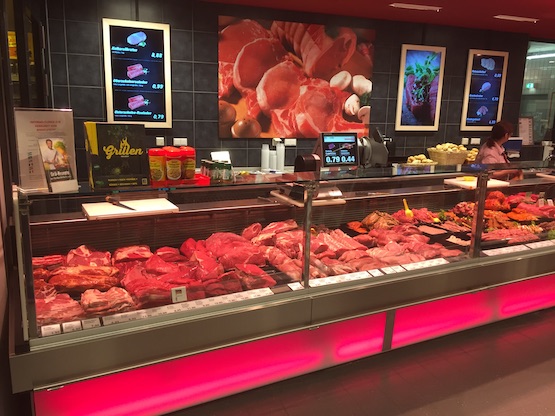Meat consumption decreased

According to data published yesterday by the Federal Information Center for Agriculture (BZL), the decline in meat consumption in Germany continued in 2023. At 51,6 kilograms per capita, meat consumption fell again by around 0,4 kilograms compared to the previous year, slightly less than in 2022. In 2018, meat consumption was 61 kilograms. Since then, it has steadily reached new lows in this country - for the nutrition organization ProVeg this is clear evidence: the nutritional transition is gaining momentum.
“Five years of declining meat consumption are an encouraging sign,” says Matthias Rohra, Managing Director of ProVeg Germany. “People in Germany are actively driving forward the nutritional transition.” As in 2022, less pork was eaten in 2023. Per capita consumption of pork fell by 0,6 kilograms. The decline in beef and veal was also 0,6 kilograms - and was therefore the highest in percentage terms. Poultry meat, on the other hand, was served a little more frequently in households again: consumption increased by 0,9 kilograms. Rohra still sees no reason to worry: “We have come a long way. I therefore have great confidence that we can achieve much more in Germany!”
Production figures and consumer studies paint a similar picture
The current production figures have already indicated the development of meat consumption. It was only in February that the Federal Statistical Office reported that the production of pork in Germany fell by 2023 percent in 6,8, that of beef and veal remained relatively stable and that of poultry meat increased slightly. Signs of a correlation? Possible, says Matthias Rohra: “We are currently observing a clear downward spiral in meat consumption and production. The industry is apparently reacting to the population’s declining meat consumption.”
Because nutrition in Germany is changing: reducing animal products has long been officially considered a separate form of nutrition. The so-called flexitarian diet is one of the plant-based forms alongside plant-based and vegetarian diets. According to the Federal Ministry of Food and Agriculture (BMEL), 46 percent of the population in Germany follow a flexitarian diet. “Almost half of the people in Germany are actively reducing their meat consumption - of course this has an impact on consumption figures,” says Rohra.
The country needs alternative proteins
Matthias Rohra knows that meat and meat products are not necessary for protein supply: “Pulses, but also nuts and grains, are valuable sources of protein, even for targeted muscle building.” Luca Waldschmidt from 1. FC Köln and national player Serge Gnabry from FC prove this, among others Bayern Munich. The key is to combine the plant-based proteins with each other. The German Society for Nutrition (DGE) recently launched its own Nutritional recommendations explicitly designed to emphasize plants.
The market is also clearly rethinking: Sausage manufacturer Rügenwalder Mühle made more sales with vegan and vegetarian alternatives than with meat products for the first time in 2021, causing a lot of excitement. The food group Pfeifer & Langen has now taken over the company and wants to bundle all activities related to plant-based meat and fish alternatives in the holding The Nature's Richness Group. A business with a future that is worth investing in.
Editorial comment from fleischbranche.de: Meat consumption is increasing worldwide however continue to do so!
Source: https://www.ble.de/SharedDocs/Pressemitteilungen/DE/2024/240404_Fleischbilanz.html
